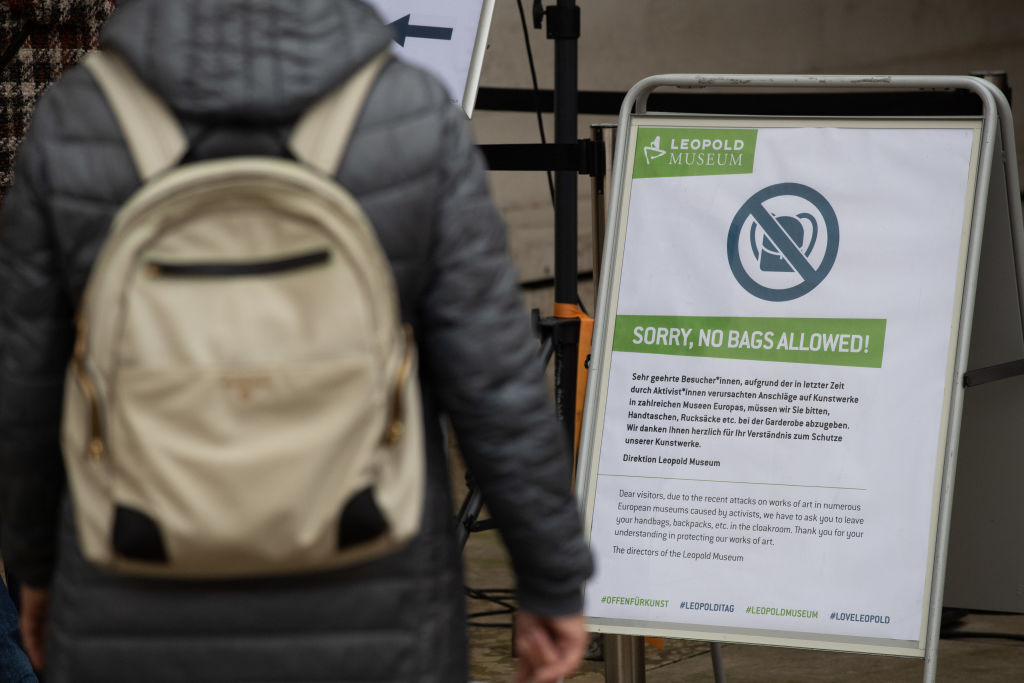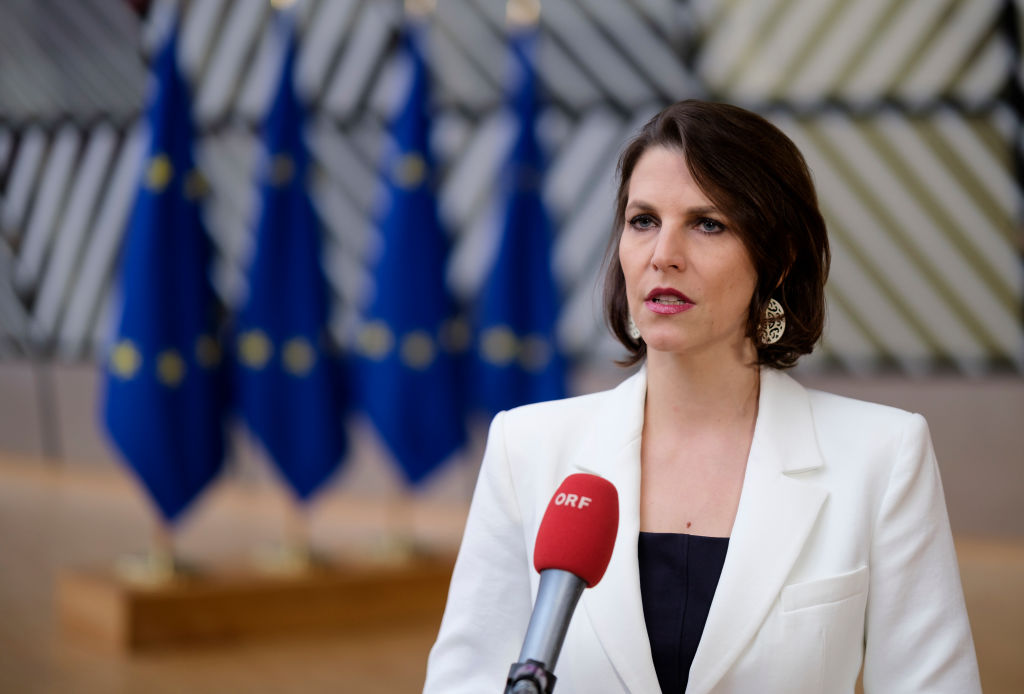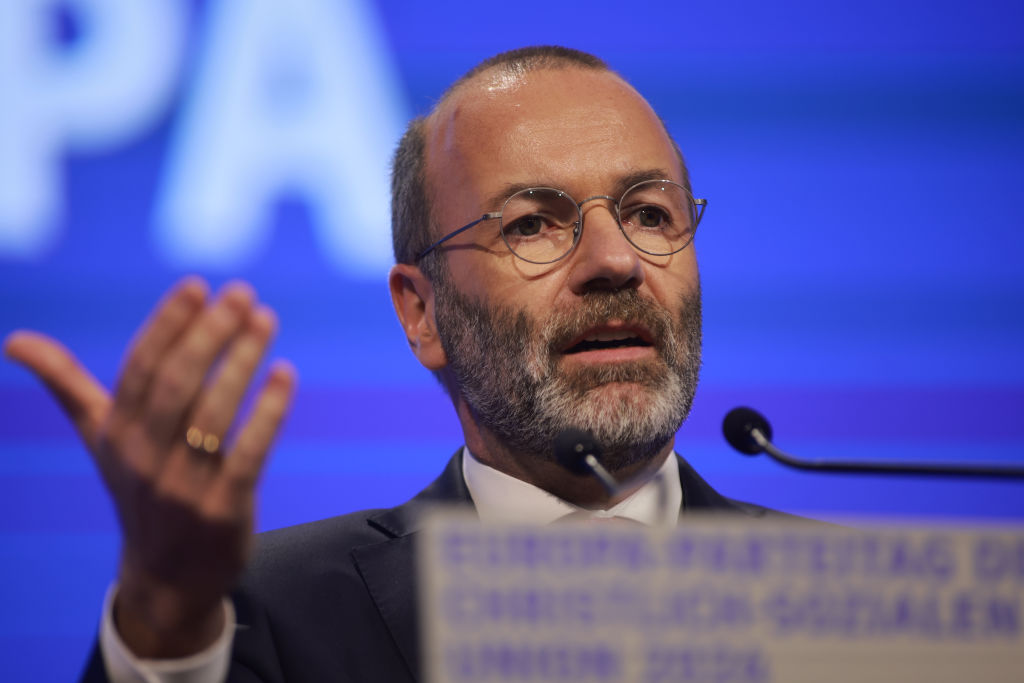Austria’s right-wing Freedom Party (FPÖ) has vowed to combat mass migration and abolish “green taxes” should it win the country’s forthcoming general election.
The party published its election programme on August 21, around five weeks before the country’s general election on September 29.
According to a recent combination of surveys by the Austria Press Agency, the party is expected to come in first with around 27 per cent per cent of the vote.
Despite that, its only path to executive power would be through a coalition with the Conservative People’s Party (ÖVP), as all other parties have ruled out a coalition with the FPÖ.
FPÖ leader Herbert Kickl presented the programme at an event in Vienna under the headline: Fortress Austria. Fortress of Freedom.
In this fortress, the “Austrian family should blossom and develop its potential under a Freedom Party ‘people’s chancellor,'” Kickl said.
Migration and ideas to curb it are a cornerstone of the programme. The FPÖ proposes the establishment of migration centres on other continents and a suspension of Austrian asylum law as long as Austria was what it called “disproportionately burdened” by immigrants.
It said it wanted to stop family reunification for asylum seekers and put a time limit on asylum grants as well as widen the array of criminal offences for which those in Austria can lose their right to asylum.
The FPÖ also wants to cut all “economic pull factors” for migration, such as social security payments and health benefits for asylum seekers.
At the international level, the party has called for a more critical stance regarding the European Union. It said it wanted to curb the power of “supranational” courts such as the European Court of Human Rights (ECHR) and the European Court of Justice (ECJ), as the party claimed these institutions regularly “overstep the boundaries of the separation of power.”
In addition, the FPÖ stated it wanted Austria to address the government’s handling of the Covid crisis and to right what it called “the biggest injustices of the post-war era with maximum fairness” regarding the country’s lockdowns and vaccine mandates.
Between 2020 and 2023 Austria saw some of the harshest government measures in the Western world imposed to supposedly limit the spread of Covid. They included a series of “hard lockdowns” and a project for mandatory vaccination — which was cancelled by the governing coalition days before it was officially set to come into practical force.
Part of the election presentation was the FPÖ’s long-awaited new economics programme. The party said it planned to cut corporate taxes for small businesses and improve access to homeownership by abolishing capital-gains taxes on stocks, often held as family investments, after a certain holding period.
Such measures are a bid to make it easier for families to accumulate the necessary capital to buy real estate.
It also promised to abolish a series of new taxes introduced by the current government headed by the Conservative People’s Party (ÖVP) with the Green Party.
These included a “TV tax,” introduced in 2024, which has required households and companies to pay up to €9.18 per year to subsidise the country’s public broadcasting company ORF.
The FPÖ also pledged to abolish various “green taxes” introduced by the current government that have greatly increased the cost of buying and driving a vehicle in Austria.
Whether the FPÖ will be in a position to implement its new programme after the elections remains to be seen. The party is ahead of the ÖVP on 23 per cent and the Social Democrats (22 per cent).
Still, its only path to executive power is through a coalition with the ÖVP, as all other parties have ruled out a coalition with the FPÖ.
In the past few months, a number of high-ranking ÖVP representatives have said they would only consider entering into a coalition if Kickl – whom they accused of “right-wing extremism” – stepped down.
As Kickl is the FPÖ’s most popular politician by far, such a condition might render any potential ÖVP-FPÖ government impossible, opening up a path to power for Austria’s Left.





